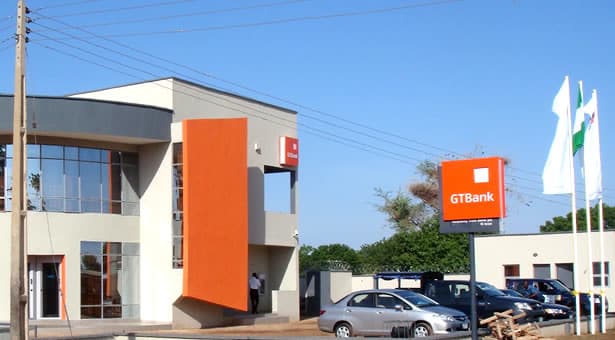Բարև,
Victoria from Techpoint,
Here’s what I’ve got for you today:
Here’s what I’ve got for you today:
- Mobius Motors: From shutdown to buyout
- GTBank hack: A possible mix of problems
- Court denies Flutterwave’s billions reversal
Mobius Motors: From shutdown to buyout

Just a week after announcing it was shutting down, Mobius Motors, a Kenyan automaker, has accepted an offer to be bought out by an undisclosed buyer.
Nicolas Guibert, a director at Mobius, shared on August 14 that the company has agreed to sell 100% of its shares, with the deal expected to close in about 30 days.
Mobius Motors has pushed back its creditors’ meeting, set for August 15, to give more time for ongoing acquisition talks. The meeting was supposed to approve KVSK Sastry as the liquidator.
Mobius Motors, hit hard by unpaid debts and salaries, decided to go into voluntary liquidation after a shareholders’ meeting on August 5, 2024. Their creditors’ lists and proxy forms were available for review at their offices.
Founded in Kenya in 2009 by Joel Jackson, Mobius launched an SUV built for African conditions in 2014 and raised $56 million from investors like Playfair Capital.
Shortly after announcing its closure, two rival dealers showed interest in buying and saving the company. Hassan Abubakar, the Permanent Secretary for Trade and Industry, also visited the plant with the Kenya Association of Manufacturers (KAM) to discuss a potential rescue.
In the meantime, other Kenyan automakers are focusing on electric vehicles. BasiGo started Kenya’s first electric bus assembly line, Chery is investing $20 million in an EV plant in Nairobi, and Neta is teaming up with Moja EV Kenya to assemble 250 electric vehicles a month. BYD is also making moves in Kenya’s EV scene.
GTBank hack: A possible mix of problems

On August 14, 2024, news broke about a potential hack at GTBank, one of Nigeria’s leading banks. Social media went wild with rumours that hackers had stolen the bank’s website and accessed customer data through a massive phishing scam.
But the experts aren’t entirely sure what’s going on. Some think if the domain was really hacked, it might have required insider access. “Transferring a domain from one manager to another needs a key from the original registrar,” one expert said.
Divine E. Ezelibe, a cybersecurity expert, is skeptical about the domain hack theory. He mentioned that taking over a domain usually means waiting for it to expire or getting access to the domain registrar, which is tricky because registrars use two-factor authentication.
Plus, domains usually have a 30 to 90-day grace period after expiration, making it hard to snatch one up right away.
Techpoint Africa found that GTBank’s domain, gtbank.com, was registered back on March 21, 2002, updated on August 13, 2024, and is set to expire on March 21, 2029. There’s no info on any previous expiration before this renewal.
As of the time of writing, the domain is down and not linking to the bank’s services, which could be problematic for customers. A developer mentioned that without a secure socket layer (SSL), login details entered might be at risk.
If the domain was indeed stolen, the website could be mirrored, putting the bank’s data in danger. The site might still connect to the API infrastructure, allowing hackers to send malicious scripts and steal info from other sites customers have visited.
Some reports think the issue might actually be a delay in domain registration, which could take a while to sort out.
Court denies Flutterwave’s billions reversal

On August 14, 2024, a Federal High Court in Abuja shot down the Inspector General of Police’s (IGP) request to have about 12 banks return billions of naira allegedly withdrawn from Flutterwave’s account at Wema Bank.
The issue stemmed from a glitch on October 12 and 13, 2023, which allowed PoS merchants to make illegal transfers.
Flutterwave had insisted that no customer funds were lost and that they were actively working with the authorities to resolve the problem.
The IGP’s legal team, led by Victor Okoye, had filed an ex parte motion, arguing that around 244 suspects had fraudulently moved the funds into various anonymous bank accounts.
Judge Peter Lifu wasn’t impressed and refused to grant the motion. He criticised the motion for not allowing the banks to present their side, which goes against fair hearing principles.
“Should I order the banks to reverse the funds without hearing their side of the story?” he questioned.
Justice Lifu also noted that the IGP didn’t file the necessary motion on notice alongside the ex parte motion, which is a requirement of court rules. He deemed the ex parte motion a violation of the right to a fair hearing under the 1999 Constitution.
In case you missed it
- ICASA launches consultation on new satellite licensing framework for satellite services
- South Africa publishes a national AI policy framework, seeks feedback
- Less than 80% of Lagos workers earn up to 100k monthly: Increase earnings with these 5 side hustles
What I’m watching
- Activities That Can Be Traced Back to Pagan Culture
Opportunities
- Pillser is hiring a UI/UX designer. Apply here.
- Pitch Friday is this Friday, August 16, 2024. To attend, apply here.
- Are you a startup founder or operator in search of like minds to learn and grow with? Join Techpoint Africa’s community to access resources, network, and build the future here.
- Follow Techpoint Africa’s WhatsApp channel to stay on top of the latest trends and news in the African tech space here.
Have a fun weekend!
Victoria Fakiya for Techpoint Africa.










